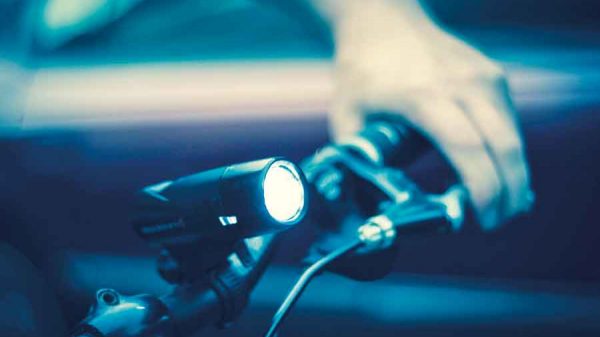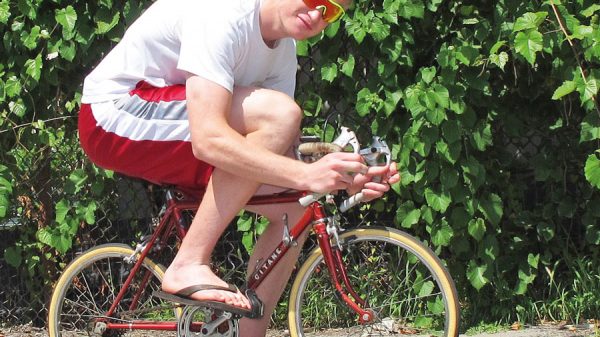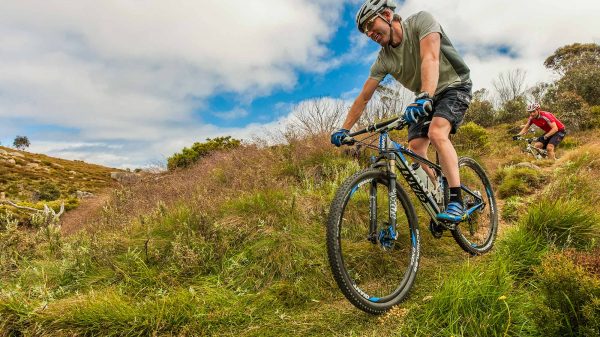As Yorkshire Gears Up To Welcome The Tour de France – Top Tips For Getting The Most Out Of Your Cycling
With the Tour de France’s Yorkshire launch set to further boost popularity of cycling in Britain and put Yorkshire on the global map*, we asked some of Spire Leeds Hospital’s experts for their advice on training; how to avoid injuries, mind-body benefits and optimum nutrition, to ensure we get the most out of our own cycling activities.
Mr. Mark Lansdown, consultant surgeon at Spire Leeds Hospital, is himself a keen cyclist. From riding his bike to work daily, to completing a 145 mile Stage One of this year’s Tour de France route; as well as riding from Lands End to John O’Groats, Mark clocks up hundreds of miles on his bike each month. We asked him for his top tips:
What do you think the health benefits of cycling are?
There is good evidence that cycling has health benefits beyond just general fitness. There are benefits to the cardiovascular and respiratory system of course but cycling may also slow mental aging.
How would you advise someone who hasn’t cycled for years, to prepare their body for cycling?
No specific preparation is necessary if you start gently but as the intensity of cycling and distances increase then stretching exercises before and after cycling become more important.
How can they prevent injuries?
Don’t over do things too soon and make sure your bike is set up properly. If your bike is adjusted badly you can develop pain anywhere from your feet to your neck and all the bits in between. There are plenty of sites on the web with general advice and even an iPhone app. The best option however is a proper bike fit from a specialist through a good bike shop but that can be expensive. Some physiotherapists managing sports injuries can also give advice about changes to your set up to help with specific aches and pains.
What type of training would you recommend?
That depends on where you are starting from in terms of your fitness and how serious you become. For most people just gradually increasing distance and speed is enough but others can benefit from the services of a coach. A coach can work with you to set and monitor your training objectives whether they are weight loss or preparation for racing. If you are returning to exercise after a long break or have any medical condition that might affect your ability to exercise it is always advisable to discuss your plans with your GP.
What are the common problems associated with cycling and how can they be resolved?
The most common complaint I hear from fellow cyclists is soreness from the saddle. Saddle choice is very personal; one size certainly does not fit all! Some cycle shops can measure you or even loan saddles to try. High quality padded shorts and chamois cream help but the problem generally subsides as you get used to longer distances and more time in the saddle. Stretching exercises can help prevent some aches and pains but you might want to try other exercises as well. Consider Pilates and Yoga to strengthen the core muscles. But always remember if your bike is not adjusted properly you will be more prone to aches and pains after your ride.
Any advice you can give in the event of injury?
Minor aches and pains will usually respond to mild analgesics and rest but anything more serious or persistent should be discussed with a physiotherapist or your GP.
How can a ‘new’ cyclist stay safe on the roads?
Always check your bike is safe to ride before you set off, especially the brakes. Begin by cycling on quiet roads or even away from roads if you are worried about traffic or your balance and general bike skills. There are schemes in some cities to help adults back to cycling. Riding with friends or a club will help build confidence. Be familiar with the Highway Code and always wear a helmet.
I recommend the British Cycling website as the first place to look for further advice. www.britishcycling.org.uk/
Dr. John Nehaul is a consultant psychiatrist, Spire Leeds Hospital. We asked him about how the mind benefits from exercise such as cycling:
How does exercise (cycling) benefit our mental health?
To carry out exercise we have to concentrate on what we are doing. Hence we are distracted from the thoughts that are in our mind. In addition exercise causes the release of beta-endorphins. These bind to opioid receptors in the central nervous system. This results in the release of the chemical, which is associated with a feeling of pleasure. In addition there is also the ‘feel good factor’ because we are doing something that is good for us. Some authorities believe this ‘feel good factor’ is more important than we had believed. Regular exercise improves our concentration and helps us to sleep better.
What role does the mind play when you exercise/ in enhancing sports performance/ and in overcoming the pain barrier.
It is our determination to achieve our target that keeps us going when we exercise. It is that determination that makes us continue to run /cycle to keep up with our colleagues when we are running/ cycling in a race. The neurotransmitter adrenalin is released. This increases the blood supply to the brain and muscles and reduces the blood supply to the skin and the gut so that we can think more clearly and our muscles can work more efficiently. As mentioned above, beta-endorphins are released and bind to the opioid receptors. This blocks the release of the chemical responsible for pain. This allows the release of another chemical dopamine, which is associated with pleasure. Hence we do not feel the pain.
Is it true that sports such as cycling may trigger a fight or flight response in us?
Exercise may trigger an adrenalin rush (the fight and flight reaction) if it is carried out in the form of a competitive sport. However the direction of more blood to the muscles and brain to enable the activity to be carried out can also produce this feeling. It can also occur if the person is ‘pushing themselves’ to achieve their target.
I understand that exercise / cycling increases the amount of blood and the oxygen supply to the brain. Is this good for us?
Yes. The brain needs oxygen to function. Hence more oxygen enables the chemical reactions to take place more efficiently.
Glenda Pollard is head nutritionist, Spire Leeds Hospital. We asked her for advice about how to ensure optimum nutrition during training and exercise:
How important is our choice of food when we are about to embark on an activity such as cycling?
There is no point trying to push yourself to the limit if you haven’t supplied your body with good nutritional choices. Eating the right foods and drinking plenty of water throughout the day will help you build your fitness safely.
What kind of foods will provide long lasting energy ahead of an active day?
Eating a nutrient-packed breakfast will help set you up for an active day and is especially important if you are training. A good choice of carbohydrates would be wholemeal toast, cereal or porridge, pancakes, juice, fruit, low fat muffins, yoghurt. Protein choices could include eggs, egg whites or peanut butter. If you want to increase the nutritional benefits add to your cereal a healthy dose of omega 3’s by sprinkling with flaxseeds, sunflower or pumpkin seeds. Re-fuelling as soon as you wake means a stronger body, which will allow you to train to your full potential.
Protein helps you build lean muscle. It also helps in repairing muscles after exercise. Foods with a lower glycemic index such as whole grains, brown rice and yoghurt provide a slower and more sustained release of energy.
Before a challenging ride aim for 1.5 grams of carbohydrates per every pound of body weight, e.g.: 225 grams for a 150-pound cyclist.







